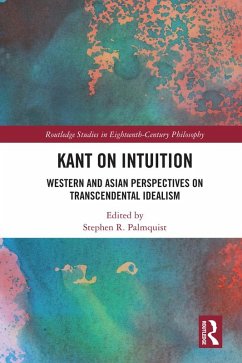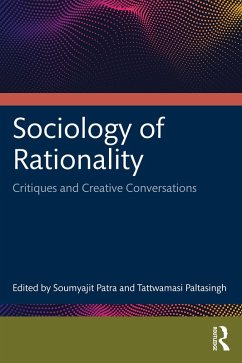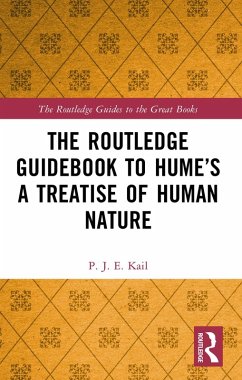
Cartesianism and Philosophy of Mind (eBook, ePUB)
Versandkostenfrei!
Erscheint vor. 13.11.25
42,95 €
inkl. MwSt.
Unser Service für Vorbesteller - dein Vorteil ohne Risiko:
Sollten wir den Preis dieses Artikels vor dem Erscheinungsdatum senken, werden wir dir den Artikel bei der Auslieferung automatisch zum günstigeren Preis berechnen.
Weitere Ausgaben:

PAYBACK Punkte
21 °P sammeln!
This book explores themes in the philosophy of mind as they emerge within the early modern Cartesian tradition. It brings together 13 contributions from international scholars to provide a fine-grained account of how 17th-century thinkers scrutinized and re-interpreted Descartes' doctrines about the nature and functions of the mind.Although it is well known that many of the challenges that philosophers confront today were already discussed by the Cartesians, historical Cartesianism remains underexplored and warrants deeper, careful study. There is much to be learned about how the Cartesian tra...
This book explores themes in the philosophy of mind as they emerge within the early modern Cartesian tradition. It brings together 13 contributions from international scholars to provide a fine-grained account of how 17th-century thinkers scrutinized and re-interpreted Descartes' doctrines about the nature and functions of the mind.
Although it is well known that many of the challenges that philosophers confront today were already discussed by the Cartesians, historical Cartesianism remains underexplored and warrants deeper, careful study. There is much to be learned about how the Cartesian tradition understood phenomena such as consciousness, intentionality, embodiment, and moral agency-and the puzzles they raise. The chapters are divided into three thematic sections. Part 1 focuses on fundamental features of cognition, such as the nature of ideas and intentionality, as they were debated by early interlocutors of Descartes. Part 2 analyzes how Cartesian philosophers conceived of the relation between sensation and material objects, including the human body. Part 3 investigates the moral and social dimensions of the Cartesian mind, such as love and virtue.
Cartesianism and Philosophy of Mind will be of interest to scholars and advanced students working on early modern philosophy and philosophy of mind.
Although it is well known that many of the challenges that philosophers confront today were already discussed by the Cartesians, historical Cartesianism remains underexplored and warrants deeper, careful study. There is much to be learned about how the Cartesian tradition understood phenomena such as consciousness, intentionality, embodiment, and moral agency-and the puzzles they raise. The chapters are divided into three thematic sections. Part 1 focuses on fundamental features of cognition, such as the nature of ideas and intentionality, as they were debated by early interlocutors of Descartes. Part 2 analyzes how Cartesian philosophers conceived of the relation between sensation and material objects, including the human body. Part 3 investigates the moral and social dimensions of the Cartesian mind, such as love and virtue.
Cartesianism and Philosophy of Mind will be of interest to scholars and advanced students working on early modern philosophy and philosophy of mind.
Dieser Download kann aus rechtlichen Gründen nur mit Rechnungsadresse in A, B, BG, CY, CZ, D, DK, EW, E, FIN, F, GR, HR, H, IRL, I, LT, L, LR, M, NL, PL, P, R, S, SLO, SK ausgeliefert werden.













